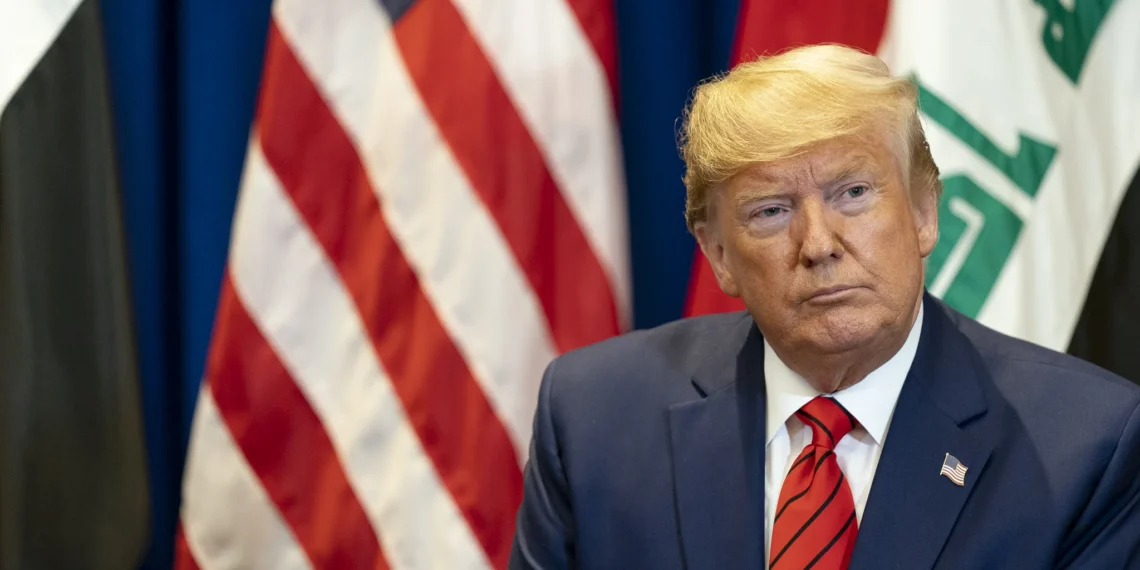President Donald Trump has unleashed his most aggressive trade measures yet, slapping hefty tariffs on over 100 trading partners, including Nigeria. The latest move, announced on Wednesday, has sent shockwaves through global markets, fueling fears of an all-out trade war.
Under the new policy, Nigerian exports to the U.S. will now face a 14% tariff, while Nigeria maintains a 27% duty on American goods. This shift could disrupt trade flows between the two nations, given that Nigeria exported N931 billion worth of goods—mainly crude oil—to the U.S. last year, while importing N1.05 trillion in return.
Trump’s tariff escalation has sparked swift backlash from economic powerhouses worldwide, with the European Union, Britain, India, and China all vowing retaliation. Notably, Mexico and Canada were spared from the latest round of levies, raising questions about Trump’s selective trade strategy.
China, frequently targeted by Trump’s trade policies, condemned the move as “self-defeating bullying” and pledged immediate countermeasures. European Commission President Ursula von der Leyen issued a stark warning: “If you take on one of us, you take on all of us.”
The global markets reacted in real-time, with Japan’s Nikkei index plummeting over 3% and South Korea’s KOSPI dropping by 2%. Economists warn that the uncertainty fueled by Trump’s aggressive trade stance could have long-term consequences, particularly for developing nations like Nigeria, which rely on stable international trade.
According to The New York Times, Trump’s sweeping tariffs have drawn widespread criticism from business groups, trade experts, and lawmakers from both parties. Even some Republicans have voiced concerns over the economic fallout, as industries scramble to assess the impact on their supply chains.
Framing the move as essential for national security, Trump argued that the tariffs would protect American jobs and boost domestic production. However, critics argue that his approach could do more harm than good.
“Trump could have worked to fix the global trade rules he claims are unfair,” said Eswar Prasad, a trade policy professor at Cornell University. “Instead, he has chosen to dismantle the system that governs international trade.”
The new tariffs impose a staggering 34% duty on Chinese imports, adding to an existing 20% levy. The European Union faces a 20% tariff, Japan 24%, and India 26%—all set to take effect immediately.
Read also: TikTok Billionaire Zhang Yiming becomes China’s richest person with $57.5 Billion Fortune
Despite global outrage, Trump administration officials remain firm, showing little willingness to negotiate reductions, even with allies willing to lower their own duties on American goods. Furthermore, officials warned countries planning retaliatory tariffs, signaling that the U.S. is prepared for further escalation.
A fresh round of levies on foreign-made automobiles is also set to take effect at midnight, adding to the billions of dollars in tariffs imposed since Trump’s return to office in January.
China wasted no time in condemning the move, calling the tariffs “subjective and unilateral assessments” driven by “unilateral bullying.” Beijing has vowed strong countermeasures, warning that no nation emerges victorious from a trade war.
“There are no winners in a trade war,” China’s commerce ministry declared, urging Washington to resolve disputes through diplomatic dialogue rather than economic aggression.
With tensions mounting, hopes for a meeting between Chinese President Xi Jinping and Trump are rapidly fading. Chinese Foreign Minister Wang Yi told Russian media that the U.S. must lift its latest tariffs before any negotiations can proceed.
“If the U.S. continues to apply pressure and resort to blackmail, China will respond resolutely,” Wang stated, hinting at broader retaliatory measures.
China has previously retaliated against U.S. tariffs by targeting American agricultural exports. This time, Beijing may hit back harder, imposing new levies, restricting U.S. investments, or even tightening exports of rare earth minerals—critical to America’s tech and defense industries.
With global markets on edge and trading partners bracing for economic fallout, Trump’s latest tariff war could set the stage for one of the most consequential trade battles in modern history. The world now waits to see who will blink first.






